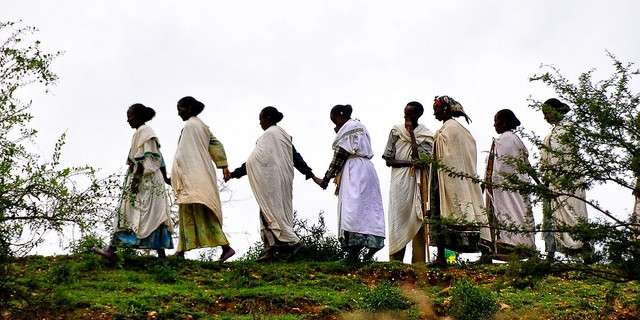Understanding reproductive health choices in low and middle income countries

Dr Lalage Katunga holds a PhD in Pharmacology and Toxicology and a Masters in Public Health. Her research is focused on understanding factors that influence health outcomes in understudied populations. She has experience working in the sub-Saharan Africa and is currently a Research Fellow at Saint Louis University, St Louis, MO. This week she stresses the importance of championing the full -picture of women's empowerment and agency in LMICs, not just reproductive rights.
One of the central challenges of global health is reproductive health. This is also one of the challenges for this round of the Bill and Melinda Gates Grand Challenges – to inform innovations in contraceptive technologies and services. When, a woman chooses to have her first child has a significant impact on the economic opportunities available to her later in life. If a woman delays having her first child, this often allows her to make more choices such as pursuing an education and achieving economic independence.
The question is how do we make it easier for women make this choice? First, we need to understand her underlying motivations. A common answer is because of high infant mortality, women tend to have more children to replace the ones she may have lost.
Another explanation is more children provide more farm hands. While there is some truth to both these explanations, it is a simplistic way of dissecting a more complex situation. In many communities, a child serves as an anchor and security in the marriage. The Ugandan comedian Anne Kansiime performs an excellent skit describing the pressure she experienced in her own marriage to have children which speaks to this cultural dynamic even among urban and more cosmopolitan women. Certain social salutations and honorifics are predicated on having children, 'mother of' or 'grandmother of'. Therefore after a woman is well past her child- bearing years, she experiences some societal pressure if her children have not made her a grandmother yet.
But this is more than just a societal phenomenon. Being a mother is way of having a voice in a society where you position in society is tethered to a man. Global legal differences between married and unmarried women range from applying for a passport, signing a contract, property rights, being able to convey citizenship to a non-citizenship husband. How is a women expected to be empowered to make choices about her body when society does not view her as a complete individual? Or worse still, when child-bearing is one of the societal bargaining chips that she has in her community? As the global health community we need to concede that waiting to have children is neither always the obvious nor the most practical choice for the women we are fighting for.
Our flawed assumption is that education and a good job will outweigh having a status in the community. Such poorly understood societal factors may explain the slow rate of fertility decline in sub-Saharan Africa. A recent World Bank Report – 'Women, Business and Law 2016" shows there is a strong link between the law have, gender disparity/ discrimination and economic opportunity. A staggering number of countries still have laws that discriminate by gender. So the promise of greater opportunity is not always the case, less so if the level of respect a woman receives in the workplace is determined by her marital status. We are just beginning to grasp the significance of social networks and how these influence our health decisions.
The fight for reproductive choice needs to include and extend past access to contraception. We have to nurture societies where the potential negative repercussions of making the right decision to delay child-bearing are minimized. While access to contraception is key, it is important to have a deeper understanding factors that determine fertility preferences. Until this changes, it will continue to be difficult to empower women to make their own reproductive choices.
This story is republished courtesy of PLOS Blogs: blogs.plos.org.


















